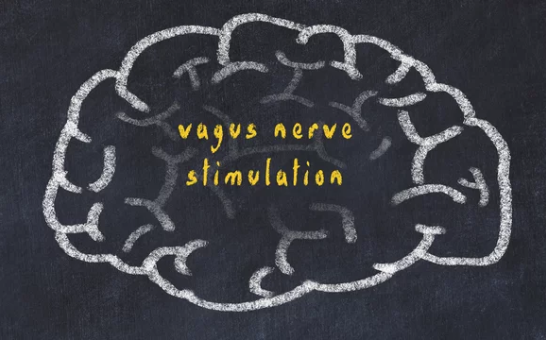|
The Latin word "vagus" means "wanderer," which appropriately describes how the nerve travels throughout the body and connects to various organs. The vagus nerve is also an important part of the parasympathetic nervous system, which helps you rest and digest. It has an impact on your respiration, digestion, and heart rate, all of which have a significant impact on your mental health. The "tone" of your vagus nerve, on the other hand, is something you should pay close attention to. The activity of the vagus nerve is represented by vagal tone, which is an internal biological process. The parasympathetic nervous system is activated by increasing vagal tone, and having a higher vagal tone indicates your body can rest faster after a stressful situation.
It's also worth noting that research has revealed that vagal tone is handed down from mother to child. Vagal activity is lower in mothers who are unhappy, nervous, or angry during their pregnancy. When they give birth, their child has reduced vagal activity as well as low dopamine and serotonin levels. Certain biological processes, such as your heart rate, breathing rate, and heart rate variability, can be used to determine your vagal tone (HRV). Your vagal tone increases when your heart rate variability (HRV) is high. They are related to one another. Don't worry if your vagal tone is low; you can boost it by activating your vagus nerve. This will enable you to respond to the emotional and physiological symptoms of your brain and mental illness more effectively. Here are a some ways to stimulate your vagus nerve:
Source: https://sass.uottawa.ca/sites/sass.uottawa.ca/files/how_to_stimulate_your_vagus_nerve_for_better_mental_health_1.pdf Comments are closed.
|
Categories
All
Archives
June 2024
|
Massage News - Articles of Interest
|
|
Recent Testimonials
"After a car accident a few years ago I have had problems with my shoulder. Rita helped me with the pain when doctors couldn't."
- Jo A. "I have suffered from chronic headaches and several back injuries for years. Regular massage has helped me to increase my flexibility and reduce muscular tension."
- Sheila P. |
About Us
We are a family-owned and operated company, serving the Bemidji area since 2004. Rita Scholl Bergstrom has over 25 years' experience as a massage and bodywork practitioner. |
2024 Copyright © Living Touch Massage. All Rights Reserved.
Site powered by Superior Effect Marketing



